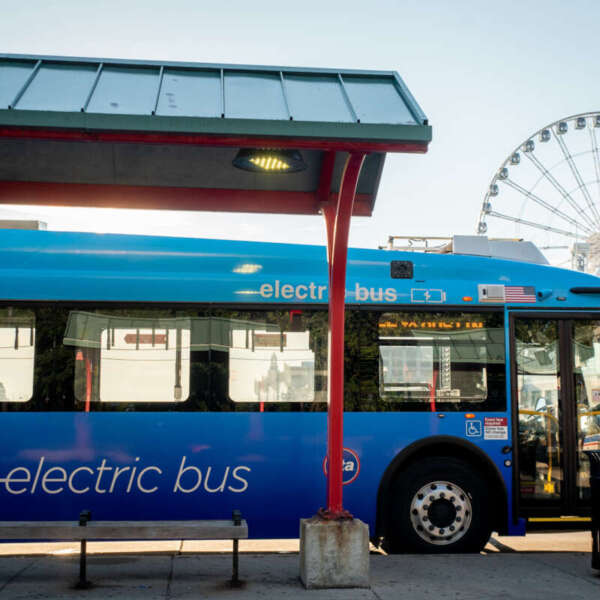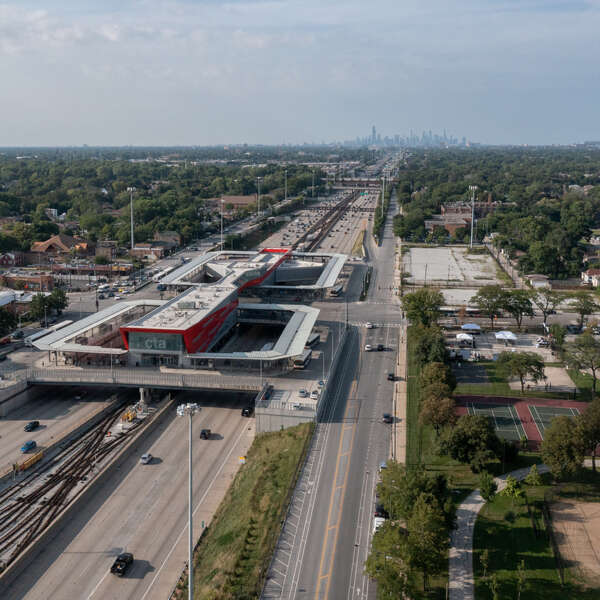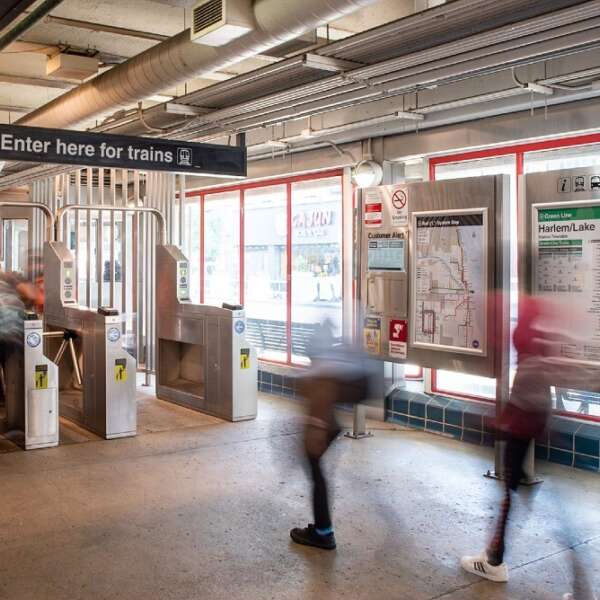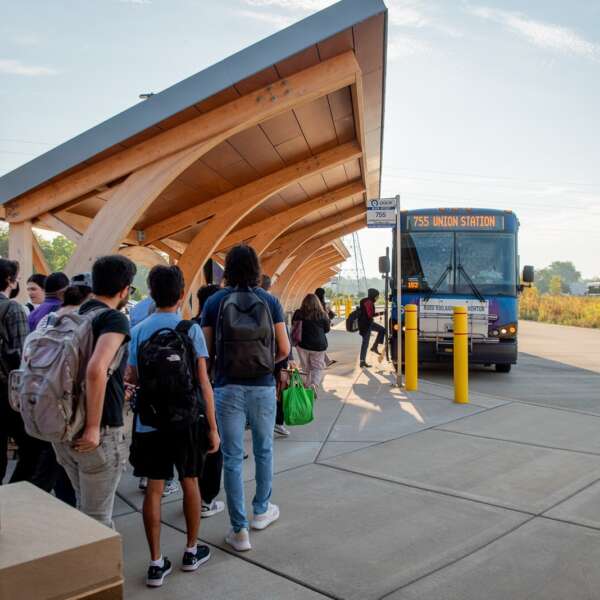New fare structure unveiled in Metra’s 2024 budget
November 16, 2023
November 16, 2023

This guest blog was written by Metra CEO/Executive Director James Derwinski. Learn more about the proposed 2024 Regional Transit Operating Budget and Capital Program and submit a comment before December 7, 2023, here.
Metra’s $1.1 billion operating budget for 2024 includes the most significant revision to its fare structure since the agency’s creation 40 years ago. This revision aims to create a fare structure that’s easy to understand, that encourages ridership, that simplifies onboard fare collection, and that meets Metra’s financial and technical constraints.
Under the new structure, fares will be equal to or lower than they were in 2019, before the COVID-19 pandemic. Major changes include:
Additionally, as the South Cook Fair Transit pilot ends after three years, Metra is partnering with Cook County and the RTA to propose a new 18-month pilot called ‘Access’ that will offer reduced fares to eligible low-income riders across the region, including on the Metra Electric and Rock Island lines.
Metra’s 2024 operating budget is 4.9% higher than the 2023 budget (excluding $65 million in added costs that will be reimbursed by Northern Indiana Commuter Transportation District, or NICTD). The increase is largely driven by inflationary (general, medical premiums, fuel, insurance) and contractual (union agreements) increases.
The operating budget projects Metra will start the year at 47% of prepandemic (2019) ridership and finish the year at about 54% of prepandemic levels. With this projected ridership increase, Metra expects $243.9 million in system-generated revenues, mostly fares in 2024. To cover the rest of its budgeted operating costs, Metra will use $560.4 million in regional sales taxes and $223.7 million in federal COVID-relief funding.
Metra’s vision to evolve toward a regional rail model – characterized by more frequent all-day service – was included in Metra’s newly adopted strategic plan, My Metra, Our Future. Metra has already rolled out new post-pandemic schedules with better frequencies, consistent stopping patterns, and an emphasis on off-peak service, and any schedule changes in 2024 will be made with those concepts in mind. In addition, Metra has two studies underway to help guide its evolution: a Route Restoration Study that is using big data to examine travel patterns and guide changes that can be accomplished with existing infrastructure, and a Systemwide Network Plan that will identify infrastructure changes needed to further aid the transition.
Metra and the region’s other transit agencies – the RTA, CTA, and Pace – are projecting that COVID-relief funding will run out in 2026, creating a “fiscal cliff.” Additional funding sources must be found, or public transportation agencies must implement other budget-balancing actions in 2026 to cover the anticipated deficit. The Chicago Metropolitan Agency for Planning, at the request of the Legislature, has issued options for addressing the deficit and meeting other challenges; click here to learn more.
Metra also approved a $574.9 million capital budget that continues significant investment in railcars, bridges, and stations. The capital budget funds 97 projects throughout the system. About 63% of the budget will fund work in four categories:
The capital budget is funded by:
For more information, see the 2024 Regional Operating Budget and Capital Program web page for links to agency budgets as well as RTA’s proposal regional transit budget that includes new 15 evaluation criteria for capital projects.
Subscribe to our Newsletter
Related Articles
 New project management oversight report highlights more than 100 projects representing $8.2 billion in capital investments
New project management oversight report highlights more than 100 projects representing $8.2 billion in capital investments
The RTA’s Project Management Oversight (PMO) program ensures that the Service Boards—CTA, Metra, and Pace—are spending capital funds and managing their infra...
June 27, 2024 Transportation Tuesday recap: Improving and expanding the transit system strategically
Transportation Tuesday recap: Improving and expanding the transit system strategically
With last year’s adoption of Transit is the Answer came 15 new evaluation metrics that comprise a strategy for evaluating and selecting capital projects. Now...
May 30, 2024 Transit is the answer to meeting Illinois’ climate goals
Transit is the answer to meeting Illinois’ climate goals
As we celebrate Earth Day 2024, the RTA is announcing Transforming Transit —the agency’s commitment to lead the Chicago region’s transit system into the futu...
April 18, 2024 Three years into the Infrastructure Investment and Jobs Act, Chicago’s transit system is winning competitive grants and advancing critical projects
Three years into the Infrastructure Investment and Jobs Act, Chicago’s transit system is winning competitive grants and advancing critical projects
The Infrastructure Investment and Jobs Act (IIJA), passed in 2021, represented a historic level of federal investment for shoring up the nation’s infrastruct...
March 12, 2024 Why fully funding paratransit service and reduced fare programs is key to closing the transit budget gap
Why fully funding paratransit service and reduced fare programs is key to closing the transit budget gap
With transit facing a fiscal cliff in the coming years, fully funding critical programs like ADA paratransit service and free and reduced fare programs is on...
February 29, 2024 RTA releases semi-annual project management oversight report highlighting more than 100 capital projects
RTA releases semi-annual project management oversight report highlighting more than 100 capital projects
Under its Project Management Oversight (PMO) program, the RTA ensures that the Service Boards—CTA, Metra, and Pace—are spending capital funds and managing th...
January 3, 2024